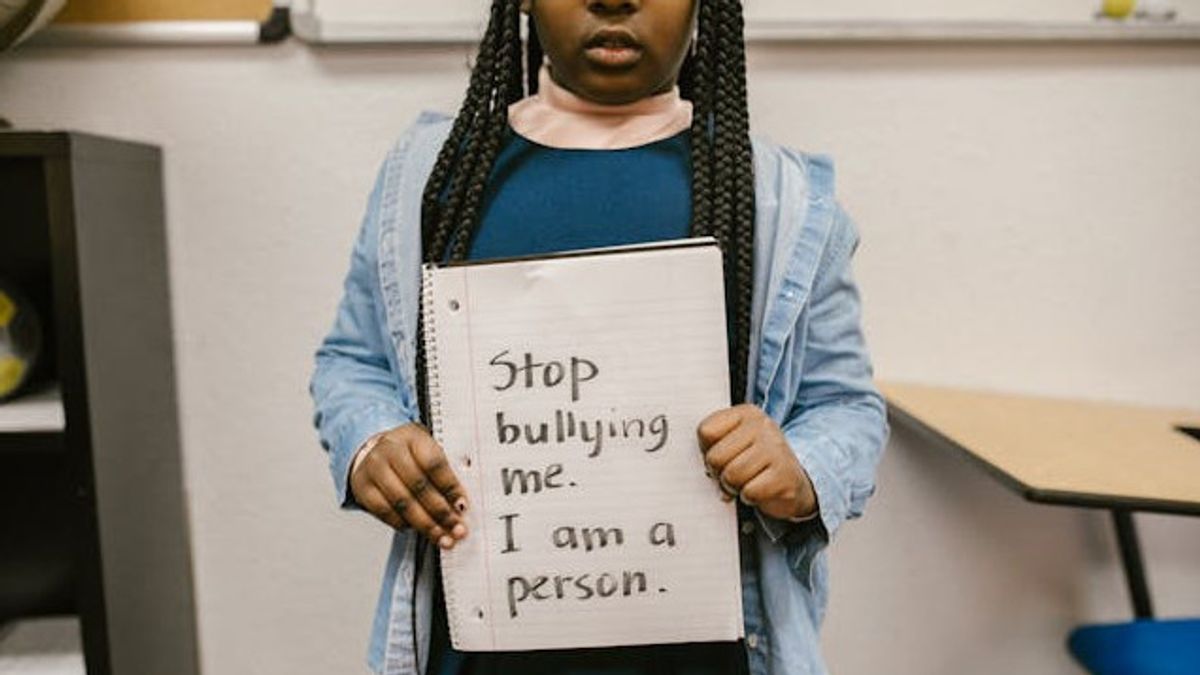JAKARTA - Bullying is rampant in Indonesia, including among children and students. The Indonesian Child Protection Commission (KPAI) received complaints from 480 children who were victims of bullying in schools from 2016 to 2020. Not only physical, but bullying is divided into several types as follows:
verbal bullying, or bullying with harsh words, involves constant insults, threats, and disrespectful comments about a person's attributes such as appearance, belief, disability, and others.
For that, parents need to teach their children respect. Through your own behavior, emphasize how everyone has the right to be treated, such as thanking teachers, praising friends, and being kind to store employees. Emphasize respect for yourself, and help children appreciate their strengths.
"The best protection parents can provide is to foster children's confidence and independence and are willing to take action when needed," said Shane Jimerson, PhD, a school psychologist and professor at the University of California, Santa Barbara, as reported by Parents, Friday, September 6.
Physical bullying, or bullying with aggressive physical intimidation, involves beatings, kicks, irregularities, blocking, push, blows, and repeated touches inappropriately and detrimentally.
If you suspect that your child is experiencing physical bullying, start a casual conversation. Ask what happens at school, during lunch or break, or on the way home. Based on the response, ask if anyone has ever been malicious to them, but try to control your emotions. Emphasize the importance of open and sustainable communication with you and with a teacher or school counselor.
Relational bullying, sometimes called emotional bullying or social bullying, involves actions that deliberately sabotage a person's social position. While forms of relational bullying are best known to involve preventing a person from joining or being part of a group, this bullying can also include the spread of rumors, sharing confidential information, and manipulating the situation.
Every night, talk to your kids about how their days are. Help them find things that make them happy, show positive quality and make sure they know people love and care about them.
Also focus on developing talent and interest in the fields of music, arts, athletics, reading, and activities after school so that children build relationships outside of school. Encouraging them to expand friendship groups based on interest will help balance the relational aggression they experience.
Cyber bullying, or online bullying, involves cursing someone by spreading harsh words, lies, and false rumors via email, text messages, and social media posts. These messages create an unfriendly atmosphere, even though they are not directly addressed to children.
First of all set household regulations for internet security. Agree to time limits that are appropriate for age and recognize popular websites, applications, and digital devices and have the potential to harass those used by children. Encourage children to tell you if they experience cyber bullying. They should also not be involved, respond, or continue.
SEE ALSO:
When someone engages in sexual bullying against other people, they often use sexual words, movements, or actions. This includes insults and sexual jokes, as well as sexual harassment or invitations. Even forcing someone to see pornography at school can be a form of sexual bullying.
Sexual bullying requires immediate treatment because risks are increasing into serious actions such as sexual assault. Often, sexual bullying is considered a form of sexual harassment. Not only should it be reported to schools, but it is also necessary to report it to law enforcement. Save documentation of what happened, when it happened, and whether any action was taken.
The English, Chinese, Japanese, Arabic, and French versions are automatically generated by the AI. So there may still be inaccuracies in translating, please always see Indonesian as our main language. (system supported by DigitalSiber.id)


















